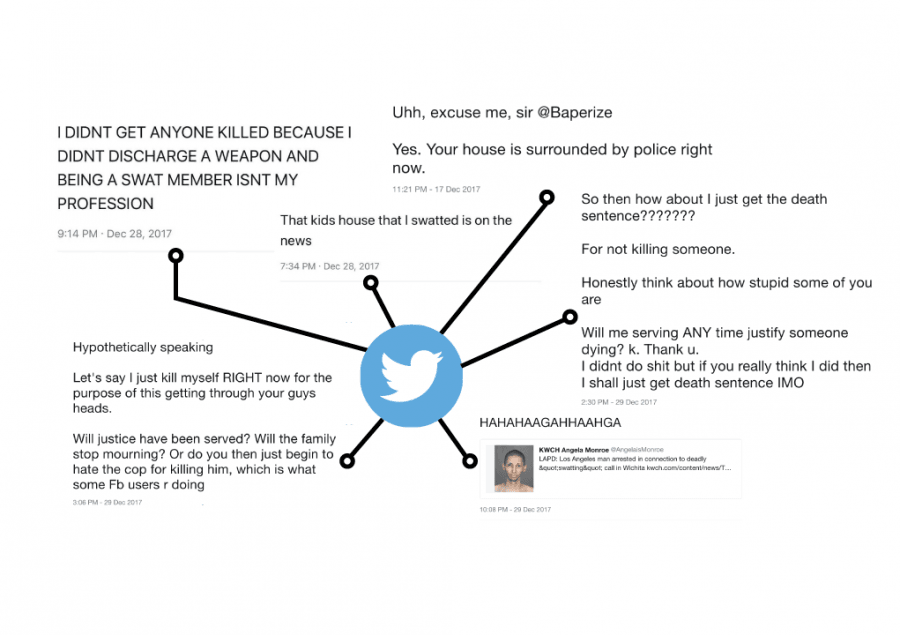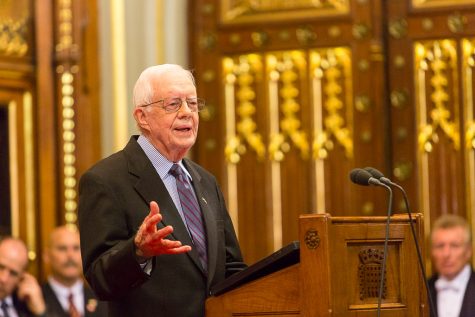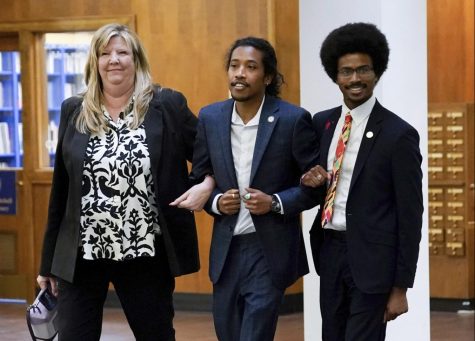“Swatting” call takes a life
How a Twitter fight lead to deadly prank
A call came in to the Wichita, Kansas police department on Thursday, Dec. 28 that painted a scary tale of a man who was holding his mother and brother hostage after killing his father. Police surrounded the house that evening as the victim was on his phone in his living room. Moments after they arrived, the man inside was shot to death by an officer.
The man who was killed was unarmed, unaware of the police and completely innocent. Andrew Finch, the 28-year-old Wichita native and father of two, was a victim of a national hoaxing trend referred to as “swatting,” which is when someone makes a phone call to the police reporting a fake crime in the hopes that the SWAT team will be deployed to that person’s home.
The alleged caller, Tyler Barriss of Los Angeles, California, has been arrested after a very public outcry about the way the police handled the situation. Many have posed the question as to whether or not the blame should be taken out of the officer’s hands or not. The victim’s mother, Lisa Finch, posed the question, “don’t they do training for SWAT incidences?” in a Dec. 31 interview.
“I am quite blown away by how trigger-happy the police (officer) was,” former Wichita State University student Paul Raymond said. “I understand to the police’s knowledge there was good reason to think the man was dangerous, but it’s concerning that the first instinct was to shoot.”
A lot of people became upset after the news broke that Andrew Finch was unarmed at the time of the shooting. According to the Wichita Police Department, the victim was not cooperating with the police and had put his hands on his hips, causing an officer to discharge his weapon on Andrew Finch.
The Wichita incident comes on the heel of scrutiny for police shootings in recent years. Movements like Black Lives Matter have popped up after police across the country have killed unarmed citizens in their cars, at home and on the street. The issue of whether or not police are too trigger-happy has been a topic of huge debate in the country.
“This is, of course, an issue with American police in general and I frankly do not understand how it always seems as though the police finds a way to fire their gun so easily,” Raymond said about recent police shootings.
This is the first swatting incident that is believed to end in bloodshed. The prank first started from video game chatrooms as a way to get revenge on another player, but it has since affected celebrities and common people who have somehow wronged the person who is calling. Usually, the caller disguises their true location when placing a call, and they report wild situations like hostage scenarios in order to garner a police presence. The ultimate goal is to surprise or humiliate the unknowing victim with a police force knocking on their door.
“This is a national trend,” Deputy Police Chief Troy Livingston said in a press conference on Dec. 29. “We’re not the only community dealing with this type of incident.”
The tragedy in Wichita came after two players of the video game “Call of Duty” were arguing through Twitter when one user, said to be Barriss, threatened swatting. The other user gave a fake address to deter the call, which ended up being Andrew Finch’s. Barriss, now accused of making the fake phone call to an innocent man’s house, tweeted on his account (which has since been suspended) that the “kids house that I swatted is on the news.”
“Later, he professed his innocence, saying, “I DIDNT GET ANYONE KILLED BECAUSE I DIDNT DISCHARGE A WEAPON AND BEING A SWAT MEMBER ISNT MY PROFESSION.”
This was not the first time Barriss has been accused of making swatting calls. Barriss has been accused of making as many as 20 similar calls, and in 2016 he was sentenced for making false bomb report calls in the Los Angeles area.
For now, the Wichita Police Department is waiting to transport Barriss from L.A. to Wichita in the following month while also talking to others who were involved with the initial fight and the fateful call. The investigation is still ongoing for the officer involved in the shooting, who is on paid leave.
“There are other people involved,” Wichita Police Chief Gordon Ramsay said in a Jan. 5 press conference. “This is a serious case that has wide-ranging implications. There also is not clear laws for this type of activity as well, which adds to the difficulties of it. Because of the complexities of the online activity that took place, that also takes more time.”
For the victim’s mother, peace will not come until she gets questions answered. In a Jan. 2 letter that was written by Lisa Finch to Wichita’s mayor and the city’s police, Lisa Finch asked for the name of the officer who shot her son, why she and her family were handcuffed and interrogated that night, and the protocol and training that the police department will put into place for responding to another prank swatting call.
“The cops are trying to make this go away, and it’s not going to go away,” Lisa Finch said in an interview with KAKE. “People aren’t going to let it.”












